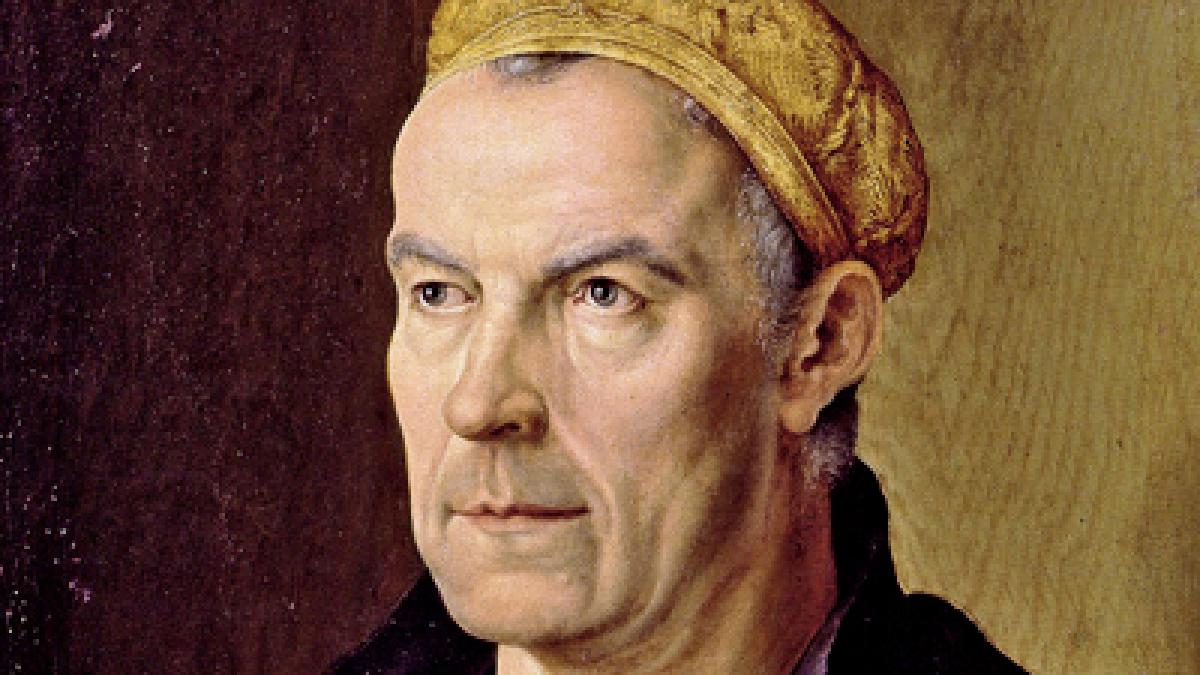The richest person in history: Who is Jakob Fugger?
If the German banker and merchant Jakob Fugger, who was born in 1459 and died in 1535, were alive today; His fortune would be greater than that of Bill Gates, Warren Buffet, Carlos Slim and Mark Zuckerberg combined.

According to Greg Steinmetz, who wrote his life story, the fortune of Fugger, nicknamed "Rich", reached 400 billion dollars in today's money.
Steinmetz, a former editor of the American Wall Street Journal newspaper, sees Fugger as "the richest person in history."
Greg Steinmetz also gave this name to his book.
Steinmetz says: "Jakob Fugger was the most powerful banker of all time. During his time, the Renaissance was taking place and two people controlled the world: the Roman-German Emperor and the Pope. Fugger was financing both."
Jakob Fugger of the Lily (6 March 1459 – 30 December 1525), also known as Jakob Fugger the Rich or sometimes Jakob II, was a major German merchant, mining entrepreneur, and banker. He was a descendant of the Fugger merchant family located in the Free Imperial City of Augsburg. He was born and later also elevated through marriage to Grand Burgher of Augsburg (Großbürger zu Augsburg). Within a few decades, he expanded the family firm to a business operating in all of Europe. He began his education at the age of 14 in Venice, which also remained his main residence until 1487. At the same time, he was a cleric and held several prebends. Even though he lived in a monastery, Jakob found time to study the history of investment in early Asian markets. American journalist Greg Steinmetz has estimated his overall wealth to be around $400 billion in today’s money, equivalent to 2% of the GDP of Europe at that time.
According to the author, no banker in history has had as much power and influence as him.
Steinmetz says: "Fugger distributed bribes to ensure that King Carlos I of Spain was elected Roman German Emperor as Charles V. Charles V colonized the New World. If he had not ascended to the throne, history would not have been the same."
So why do so few people know about Jabob Fugger, unlike his contemporaries the Medicis, the Brothers Cesare and Lucrezia Borgia, or Nicolas Machiavelli?
One reason, according to Steinmetz, is that Fugger is German and unknown in the English-speaking world.
This is what motivated the author to write Fugger's biography:
"I often heard of Fugger when I was bureau chief of the Wall Street Journal in Berlin, but I couldn't find a single English text about him."
He built neither a palace nor a cathedral.
But perhaps the reason why Fugger is not well known outside his own country is that he is not a colorful character like other celebrities of his time.
He did not want to become Pope or hold political office.
He did not support any artists during the Renaissance, nor did he commission palaces or cathedrals to be built.
His most famous work is the social housing project, Fuggerai, which he commissioned in his hometown of Augsburg in the south of Germany. Residents of these homes still pay only $1 a year in rent.
“Bankers are used to working behind the scenes,” says Steinmetz.
But that doesn't mean Jakob Fugger didn't leave his mark. In fact, its impact is still felt today, although most of us don't know it.
Here are 5 things we owe to Fugger;
1. First international economic activity
During Jakob Fugger's time, economic activities were limited. The rich lived on their lands where the peasants worked, and the peasants received protection in return.
In return for the loans he gave, Fugger obtained mining rights and completely took over the copper and silver trade.
In addition, he also ventured into the spice trade. So he was actually one of the founders of capitalism.
2. He founded the first news service
Jakob Fugger knew that information was valuable and that's why he wanted to access it before his competitors.
Therefore, he paid messengers who brought information about political and commercial activities in different cities.
His successors kept this tradition alive and eventually, Fugger Bulletins was founded.
Some consider it the oldest newspaper in the world.
3. He opened the first savings account in its modern sense
Other families, such as the Medici, also had banks, but the Catholic Church did not allow the payment of interest, which it considered usury.
Fugger persuaded his customer, Pope Leo the 10th, to lift this ban and promised 5 percent annual interest to customers who deposited their money in his bank in Augsburg.
4. Funded explorers
Christopher Columbus was 33 years old when he discovered America.
Interested in the economic potential of these discoveries, Fugger paid for the first trip to India.
He was also one of those who paid the expenses of Magellan's journey around the world.
5. Provoked the Protestant Reformation
One of the things Jakob Fugger did in collaboration with the Vatican was to sell forgiveness of sins.
He proposed it as a way to defray the costs of building St. Peter's Cathedral.
This year will be the 500th anniversary of the reform movement sparked by Martin Luther, who opposed this practice.
